The Best Meditation Retreats for Beginners: A Journey Toward Wellness
Meditation has been practiced for centuries, offering a pathway to better mental, physical, and spiritual health. Today, more people than ever are turning to meditation retreats to discover the practice in an immersive and supportive environment. For beginners, finding the right retreat can be transformative, providing the foundation for a lifelong habit that nurtures overall well-being.
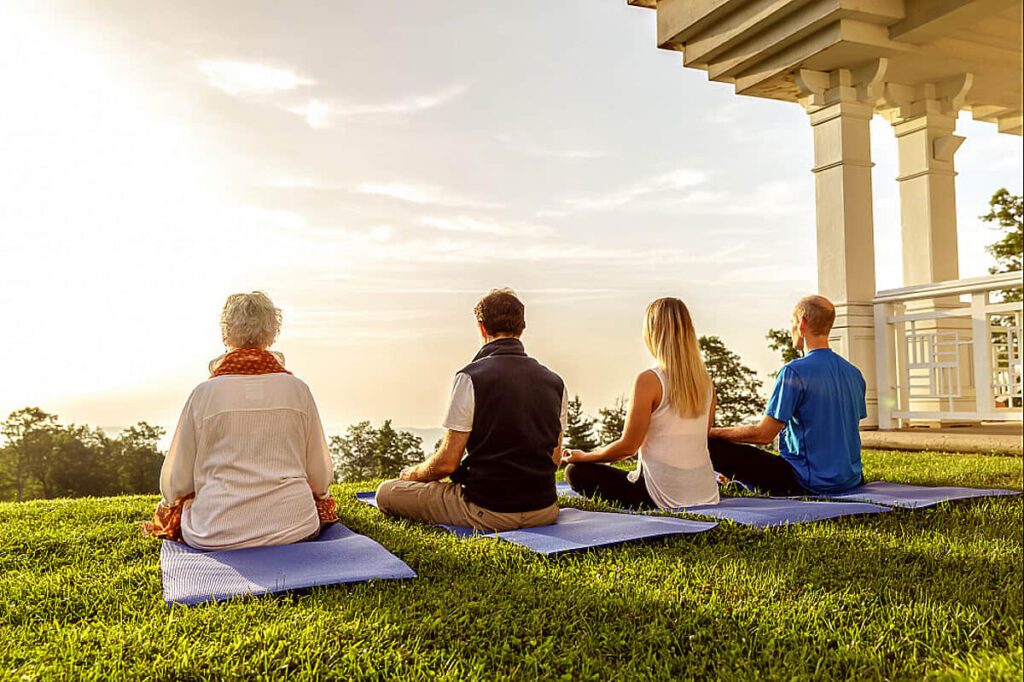
In this article, we’ll explore the benefits of meditation for mental health, physical fitness, and spiritual growth, and discuss why specialized beginner retreats offer the perfect introduction to this ancient practice.
Benefits of Meditation for Health and Wellness
Meditation is more than a tool for relaxation; it’s a proven method for enhancing well-being. Studies have consistently shown its benefits across various aspects of health, making it a vital addition to anyone’s lifestyle.
Mental Health
- Stress Reduction
Meditation reduces stress by lowering cortisol levels—the hormone responsible for stress. Mindfulness techniques teach individuals to stay present, breaking the cycle of worry and anxiety. - Enhanced Focus and Clarity
For beginners, learning to focus on the breath or a mantra can lead to improved concentration and mental clarity. These skills translate into better decision-making and increased productivity. - Emotional Regulation
Meditation helps individuals respond to emotions more calmly, reducing the likelihood of anger or frustration taking over. This is particularly beneficial for managing conditions like anxiety and depression. - Improved Sleep
Many beginners report better sleep after starting meditation. Practices like guided visualization or body scans can calm the mind, preparing it for restful sleep.
Physical Health
- Lower Blood Pressure
Meditation activates the parasympathetic nervous system, helping to lower blood pressure and improve cardiovascular health. - Boosted Immune Function
Regular meditation can strengthen the immune system, making the body more resilient to illness. - Pain Management
Mindfulness meditation has been shown to reduce chronic pain by teaching individuals to observe their pain without judgment, altering their perception of discomfort. - Enhanced Physical Fitness
By combining meditation with gentle movements like yoga, retreats can improve flexibility, balance, and overall physical fitness.
Spiritual Growth
- Inner Peace
Meditation retreats create a serene environment for self-discovery, enabling participants to connect with their true selves and find inner peace. - Heightened Awareness
For beginners, meditation can spark a sense of wonder and curiosity about life, fostering gratitude and a deeper connection to the world around them. - Alignment with Values
Meditation often brings clarity about personal values and goals, helping individuals align their actions with their intentions.
Why Choose a Beginner-Friendly Meditation Retreat?
Embarking on a meditation journey can be daunting, especially without guidance. Beginner-friendly meditation retreats offer tailored programs that gently introduce participants to the practice, ensuring a positive and enriching experience.
Structured Learning
Beginner retreats provide structured schedules, combining meditation sessions with workshops and discussions. This step-by-step approach helps participants grasp foundational techniques.
Supportive Community
Being surrounded by like-minded individuals fosters a sense of belonging. Participants can share experiences, learn from each other, and build lasting connections.
Access to Expert Teachers
Retreats for beginners often feature experienced teachers who offer personalized guidance, answer questions, and address challenges.
A Distraction-Free Environment
Retreats are typically held in tranquil locations, free from the distractions of daily life. This peaceful setting helps beginners focus on their practice.
Tailored Practices
These retreats introduce accessible techniques such as guided meditations, breathwork, and body scans, ensuring participants feel comfortable and capable.
What to Expect at a Beginner Meditation Retreat
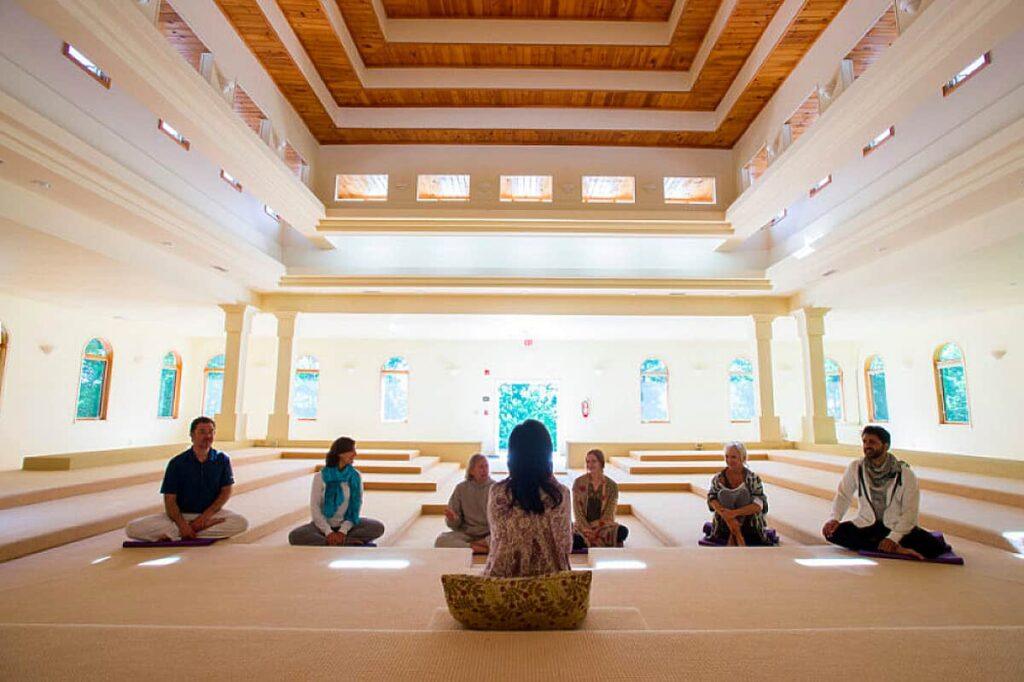
Knowing what to expect can ease any apprehension about attending a retreat. Here are some common elements:
- Daily Meditation Sessions
Sessions are typically short and guided, making them ideal for beginners. - Yoga and Movement
Gentle yoga or tai chi classes complement meditation by preparing the body and mind for stillness. - Workshops and Talks
Workshops cover topics like mindfulness, stress management, and the science of meditation. - Nature Immersion
Many retreats are located in serene natural settings, encouraging participants to connect with the environment. - Healthy Meals
Nutritious, often plant-based meals nourish the body and support mental clarity.
Top Meditation Retreats for Beginners
Below are some of the best meditation retreats tailored specifically for beginners, offering a mix of expert instruction, serene settings, and transformative experiences.
1. Shambhala Mountain Center, Colorado, USA
- Why It’s Great for Beginners:
Shambhala offers beginner-focused programs that introduce mindfulness and meditation in a relaxed, welcoming environment. - Highlight:
Nestled in the Rocky Mountains, the center combines meditation sessions with nature hikes.
2. Gaia House, Devon, UK
- Why It’s Great for Beginners:
This silent retreat center provides guided meditations and mindfulness courses designed for newcomers. - Highlight:
The peaceful English countryside setting promotes deep relaxation and reflection.
3. Spirit Rock, California, USA
- Why It’s Great for Beginners:
Spirit Rock focuses on mindfulness and compassion, offering courses specifically for those new to meditation. - Highlight:
The retreat includes talks by world-renowned teachers and an opportunity to engage with a supportive community.
4. Dhanakosa, Scotland, UK
- Why It’s Great for Beginners:
This retreat center offers week-long programs for beginners, combining meditation with outdoor activities like hiking and kayaking. - Highlight:
The Scottish Highlands provide a breathtaking backdrop for spiritual growth.
5. Vipassana Meditation Centers (Worldwide)
- Why It’s Great for Beginners:
Vipassana centers offer donation-based courses, making them accessible to all. Courses teach the basics of mindfulness meditation over ten days. - Highlight:
The silent nature of these retreats fosters deep self-reflection.
The Benefits of a UK Meditation Retreat
The UK offers a unique blend of natural beauty, historical significance, and spiritual heritage, making it an ideal destination for a meditation retreat.
Stunning Countryside
From the rolling hills of the Cotswolds to the rugged coasts of Cornwall, the UK’s diverse landscapes provide a serene setting for introspection.
Rich Spiritual Heritage
The UK is home to ancient sites like Stonehenge and Glastonbury Tor, which have long been associated with spiritual practices.
Accessible Location
With excellent transport links, the UK is easily accessible for both local and international visitors.
Mild Climate
The UK’s temperate climate allows for comfortable year-round retreats.
Diverse Retreat Options
From luxurious spa-like retreats to rustic countryside getaways, the UK offers a range of options to suit all preferences and budgets.
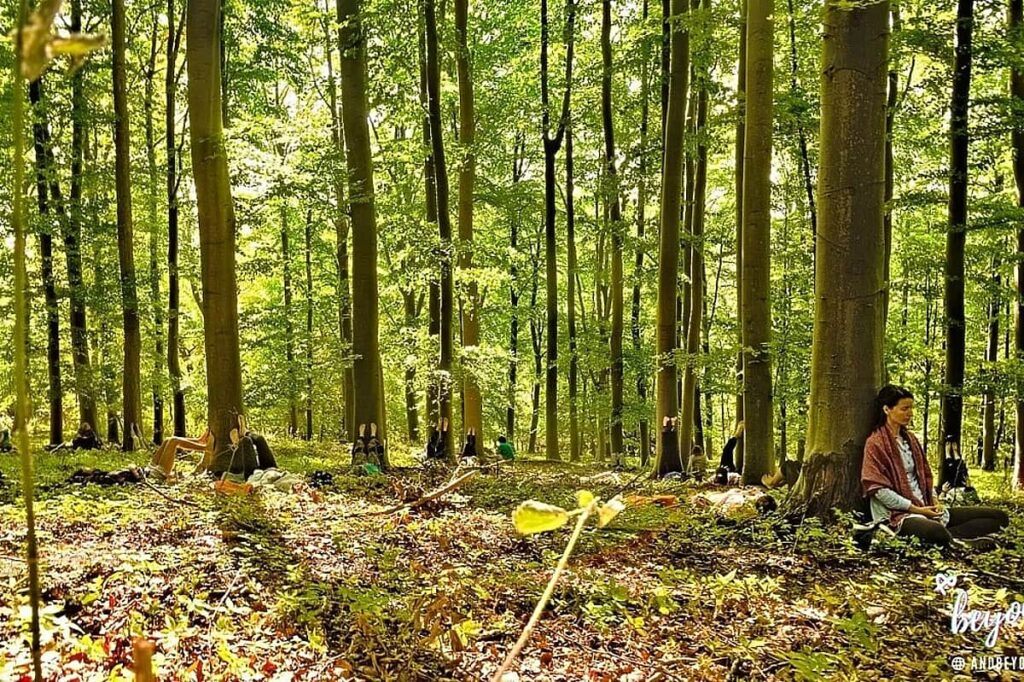
Special Features of Beginner Retreats in the UK
Many UK retreats stand out for their unique offerings:
- Customizable Programs:
Choose from weekend getaways or week-long immersions. - Holistic Wellness:
Incorporate yoga, mindfulness, and even creative workshops into your retreat experience. - Cultural Enrichment:
Some retreats include visits to nearby historical or spiritual sites.
Why Invest in a Meditation Retreat?
Attending a meditation retreat is an investment in your well-being. While retreats can seem expensive, the benefits far outweigh the cost.
Health Benefits
The physical and mental health improvements gained from regular meditation can reduce healthcare costs over time.
Personal Growth
Retreats foster self-awareness, emotional resilience, and a deeper connection to one’s values.
Lasting Habits
A retreat jumpstarts a meditation practice that can continue to provide benefits long after the retreat ends.
Tips for First-Time Attendees
- Set an Intention:
Clarify what you hope to gain from the retreat. - Keep an Open Mind:
Be willing to try new practices and embrace the unfamiliar. - Prepare for Silence:
Many retreats include silent periods. Approach this with curiosity rather than apprehension. - Pack Comfortably:
Bring comfortable clothing, a journal, and any personal items that help you feel at ease. - Stay Hydrated and Rested:
Ensure you’re physically prepared for the retreat to fully immerse yourself in the experience.
Conclusion
Meditation retreats for beginners are more than a getaway; they are a gateway to a healthier, more balanced life. Whether you’re seeking to reduce stress, improve physical fitness, or deepen your spiritual connection, a retreat can provide the tools and guidance you need to start your journey.
With its serene countryside, rich spiritual heritage, and expert-led retreats, the UK offers some of the best options for beginners. By investing in a meditation retreat, you’re not only taking a step toward wellness but also creating a foundation for lasting peace and happiness.
If you’ve been considering starting meditation, why not take the plunge and explore one of these transformative retreats? The benefits—both immediate and long-term—are waiting for you.
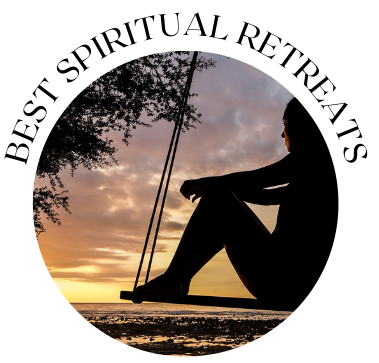
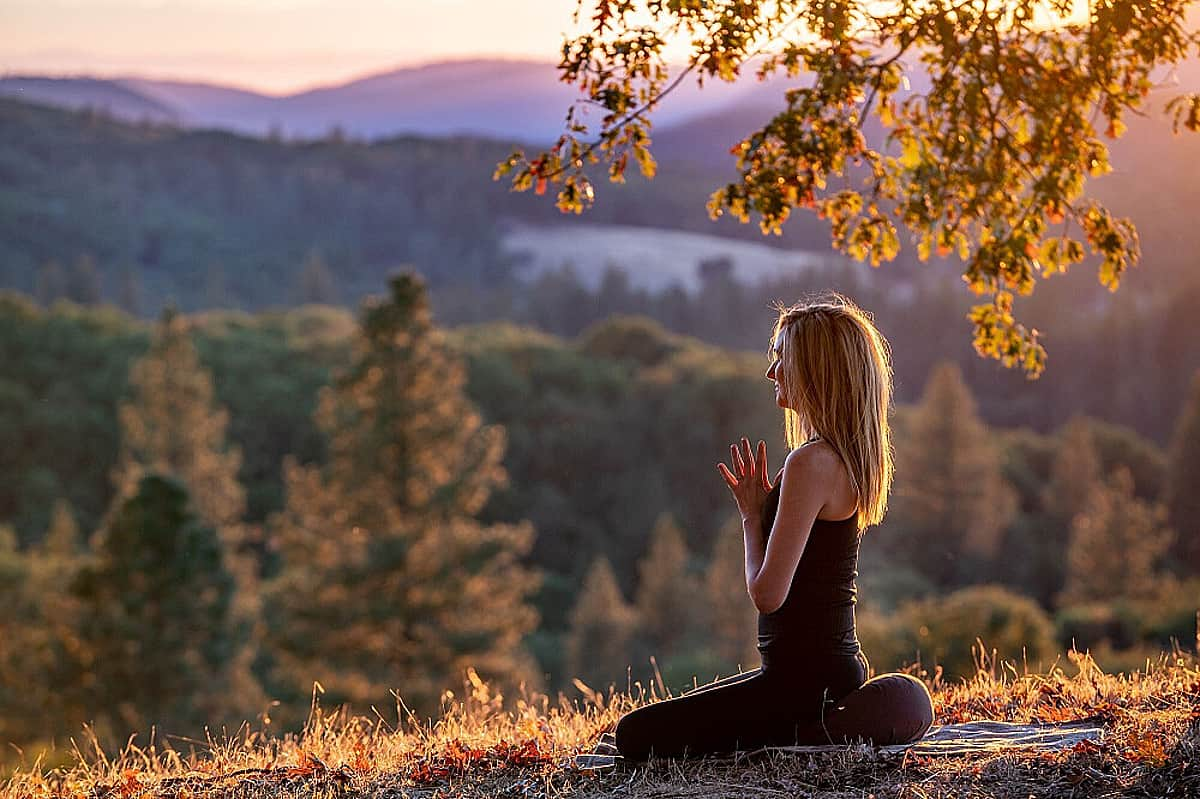
I really enjoyed your article on the best meditation retreats for beginners! It’s so important to find a space where we can unwind and connect with ourselves, especially in today’s fast-paced world.I love how you highlighted the variety of retreats available. Each one offers a unique experience, catering to different needs and preferences. It’s inspiring to think about how even a short retreat can lead to significant personal growth and inner peace.
I’m curious, what do you think is the most important factor for beginners when choosing a retreat? Is it the location, the style of meditation, or perhaps the community? Looking forward to your thoughts!
Thank you for your thoughtful comment! I’m so glad you enjoyed the article and found inspiration in the variety of meditation retreats available. It’s true—taking time to unwind and reconnect is a vital antidote to today’s fast-paced world.
For beginners, I think the most important factor when choosing a retreat depends on their personal goals and comfort level. For some, the location might be key—being surrounded by serene nature can create a calming environment that enhances the experience. For others, the style of meditation could be the deciding factor. Beginners often feel more comfortable starting with guided practices or retreats that offer a mix of mindfulness and relaxation techniques.
The community aspect is also incredibly impactful. A welcoming and supportive group can help beginners feel more at ease and encourage them to fully embrace the experience.
What draws you most to the idea of a meditation retreat—connecting with others, learning new techniques, or simply the chance to escape and reflect? I’d love to hear your perspective!
It has been quite a few years now since I have been to a yoga class and the last ones I went to were called “Yoga in daily life” I really enjoyed it when I was doing it and have missed it. I got caught up again in the things that stress me out. Work and relationships.
After reading your article on retreats and information on yoga, I really want to start it again. Mainly because I never felt healthier than then and also because I felt almost stress-free. However, before I commit to a yoga retreat, I would like to spend at least a few months getting “back into the saddle” as such.
What is the best way to start practicing again? I live in Vietnam so it is not like I can pop down the road and join a class, I would also prefer to do something from home as well.
How would you suggest I start again?
Steve
Hello Steve,
Thank you for sharing your story, and it’s wonderful to hear you’re inspired to return to yoga! It’s natural to drift away from practices we enjoy when life gets hectic, but the fact that you’re looking to restart speaks volumes about your commitment to self-care.
Getting back into yoga at home is a great idea, especially if access to in-person classes is limited. Here are some steps to ease back into it:
Set a Dedicated Space and Time: Create a calming space in your home where you can practice without distractions. Choose a consistent time each day that fits your schedule—it could be mornings to set the tone for your day or evenings to unwind.
Start with Online Classes or Apps: There are excellent platforms offering guided yoga classes for all levels. Apps like Yoga With Adriene (free YouTube classes), Alo Moves, or Down Dog are beginner-friendly and allow you to practice at your own pace.
Begin with Gentle Styles: Start with Hatha or Yin yoga to ease your body back into the practice. Focus on poses that promote flexibility and relaxation before progressing to more dynamic styles like Vinyasa.
Consistency Over Intensity: Even 10-15 minutes a day can make a difference. Build a habit of showing up for your practice without worrying about intensity or duration initially.
Incorporate Breathing and Mindfulness: Pranayama (breathwork) and meditation are powerful tools that complement yoga. These can help reduce stress and reconnect you with the present moment.
Find Online Communities: Join virtual yoga groups or forums to stay motivated and share your progress. Connection with others can make the journey more enjoyable.
Once you feel comfortable with a regular practice, consider taking the plunge into a retreat. A retreat will give you the opportunity to deepen your practice, connect with like-minded individuals, and recharge both mentally and physically.
I’m so glad this article has rekindled your interest in yoga—wishing you a peaceful and fulfilling journey back to the mat!
Best regards,
Alan
I always figured that there were retreats for meditation, but I never personally thought about going to one. I guess also If I wanted to go to a class for meditation, I am pretty sure I might find one in the city where I live. The only mediation I have done in the past was to sit in my room at home and follow the instructions on a YouTube channel for meditation. I would really like to incorporate at least 15-30 minutes of my daily life and start again. I have also been thinking about looking in to classes for seniors in Tai Chi and yoga as I heard they are great for peace and relaxation for the body. Any suggestions on things I could do at home would be great also. Thank you for a great article!